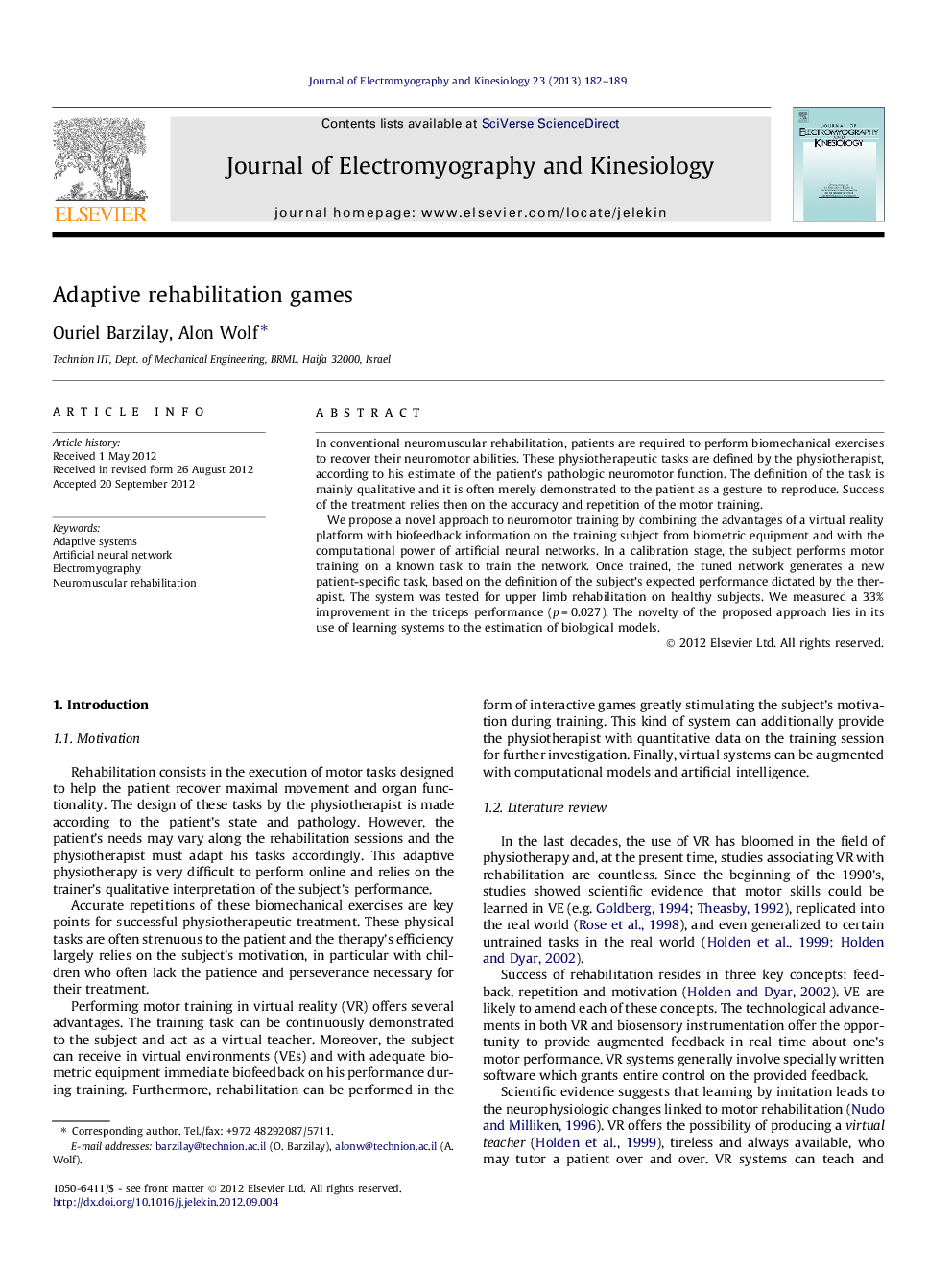| Article ID | Journal | Published Year | Pages | File Type |
|---|---|---|---|---|
| 6210451 | Journal of Electromyography and Kinesiology | 2013 | 8 Pages |
In conventional neuromuscular rehabilitation, patients are required to perform biomechanical exercises to recover their neuromotor abilities. These physiotherapeutic tasks are defined by the physiotherapist, according to his estimate of the patient's pathologic neuromotor function. The definition of the task is mainly qualitative and it is often merely demonstrated to the patient as a gesture to reproduce. Success of the treatment relies then on the accuracy and repetition of the motor training.We propose a novel approach to neuromotor training by combining the advantages of a virtual reality platform with biofeedback information on the training subject from biometric equipment and with the computational power of artificial neural networks. In a calibration stage, the subject performs motor training on a known task to train the network. Once trained, the tuned network generates a new patient-specific task, based on the definition of the subject's expected performance dictated by the therapist. The system was tested for upper limb rehabilitation on healthy subjects. We measured a 33% improvement in the triceps performance (p = 0.027). The novelty of the proposed approach lies in its use of learning systems to the estimation of biological models.
